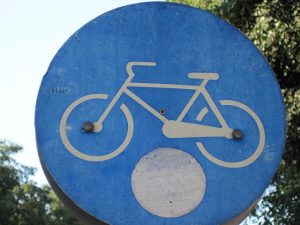 “Borders, Territory and Conflict in a Globalizing World” was the theme at a conference held in Israel. Experts deliberated on ethnicity, power relations and technology. Dr. Gotlieb emphasizes that such issues must be linked to the environment.
“Borders, Territory and Conflict in a Globalizing World” was the theme at a conference held in Israel. Experts deliberated on ethnicity, power relations and technology. Dr. Gotlieb emphasizes that such issues must be linked to the environment.
The conference engaged specialists from Europe, the US, India, Canada, Russia, Israel and elsewhere on a variety of subjects relating to changes in the world political order as a result of globalization. Familiar geographical concepts such as territory, borderlands, states and geopolitics were reexamined in light of developments that have taken place in the post-9/11 world.
In his keynote address, Prof. Alexander Murphy of the University of Oregon set the conference’s tone with a discussion of “Territory’s Continuing Allure.” He noted that the contemporary nation-state system is often incongruous with the societies they supposedly represent. Consequently, substate and extra-state “identity communities” – ethnic and linguistic groups — continue pressing for self-determination and recognition. These aspirations challenge existing states and the system that sustains them.
Ethnic conflict and borders were a major focus of the conference. Among the cases discussed was Abkhazia and other “unrecognized” republics in post-Soviet space. IGU vice president Prof. Vladimir Kolossov of the Russian Academy of Sciences and Prof. John O’Loughlin of the University of Colorado, Boulder described the uneasy relationship between the Abkhaz majority and the Georgian minority in state-building process following the territory’s secession from the Republic of Georgia.
Similar issues were discussed in my paper on “Geo-Ethnic Discordance in the Middle East State System” dealing with the discontinuity of contemporary state borders in the Middle East. Ethnic conflict and demands for self-determination involving the Kurds, the southern Sudanese and the Baluch were described in the presentation.
New Systems of Closure
The impact of technological innovations – the Web, digital communications and information technologies, biometrics, surveillance systems and remote sensing – and new tools for bordering and gating – to keep out criminals and terrorists but which also invade privacy and lend themselves to Orwellian scenarios were the subject of lectures and discussions.
Prof. Stéphane Rosière of the University of Reims, France discussed the roles of walls and fences. Following the fall of the Berlin Wall in 1989 there were expectations of a trend toward a “borderless world.”
This promise, according to the speaker, has been replaced with “teichopolitics,” the development of closure systems on international borders and cities. These include physical structures such as walls, — the West Bank wall was cited in this connection – fences and morphological, semantic and financial boundaries to regulate flows of people and goods. Increasing concentration of wealth and privilege in bounded enclaves were cited as resulting from these developments.
Gabriel Popescu of Indiana University provided a chilling portrait of developments in “border securitization” including new innovations in border crossings and borders. Among these are forward borders manifested by a network of detention centers maintained by European states in north African countries and the Straits of Gibraltar to interdict would-be migrants. Also presented was a map of states where constitutional guarantees against unlawful search and seizure in United States borderlands have been suspended with respect to persons authorities consider suspect.
Transborder Cooperation
A paper on strategies for everyday living in Hungary’s ethnically diverse border regions was presented by Prof. Doris Wastl-Walter of the University of Bern. Tensions engendered both by changes in national boundaries and also in the Schengen line (the European Union border for the mobility of people and goods) have been transcended by “translocal” cooperation between neighboring ethnic groups in Hungary and Slovakia in a case study Wastl-Walter discussed.
The theme of cross-border cooperation was discussed by Tammy Arieli of Tel Hai and Ashkelon Colleges with respect to Israel and Jordan. She described the challenges posed by fluctuating relations between the national capitals in frustrating cross-border interaction between local populations in the northern segment of the border, the Dead Sea region and the Gulf of Eilat/Aqaba area. Among the difficulties Dr. Arieli highlighted was redundant infrastructures along the border.
Also, national policies and checkered relations between the governments disrupt efforts to normalize relations between Israeli and Jordanian neighbors.
A major component of the conference was the discussion of aspects of the Israel-Palestine imbroglio. Several papers discussed Israeli Arabs and Bedouin in particular. Israel’s annexation of the Golan Heights and West Bank settlement in terms of occupation were analyzed in terms of control and hegemony. Ben-Gurion University geography professor Oren Yiftachel, one of the organizers of the conference, discussed his concepts of “creeping apartheid,” and “gray space” with respect to the Israel Bedouin and the occupation of the West Bank.
Sponsored by the Commission on Political Geography of the International Geographical Union (IGU), the event was hosted by Prof. David Newman, of the Department of Politics and Government and incoming Dean of the Faculty of Humanities and Social Sciences at Ben-Gurion.
Prof. Newman also described the intricacies of determining the nature of the future border on the Israel-Palestinian boundary and urged “thinking out of the box” in arriving at solutions.
The need for linkages to environmental concerns was noted by Stuart Schoenfeld, a York University sociologist and myself. The importance of increasing geographical education, the restoration of maps as a central tool of geographical analysis, and reclaiming political geography’s rightful place in discussions of international affairs were also raised.
In his summary remarks, Prof. Anton Gosar, Chairman of the IGU Political Geography Commission noted the consensus among the conference participants that the presentations were of particularly high caliber. Discussions were lively and congenial and a renewed commitment to political geography as a community of scholars involved in applied research and collaboration was evident.
Many thanks were expressed to Prof. Newman and his staff for organizing a very fruitful gathering. There was broad agreement that Ben-Gurion University of the Negev is a most congenial environment for international geographical conclaves.
Read more on conflict, borders and the environment:
The Cost of Conflict in the Middle East (Strategic Foresight Group)
Gaza Conflict With Israel Has Environmental Aspects Too
Killing For Water In Iraq
Image via piccadillywilson



